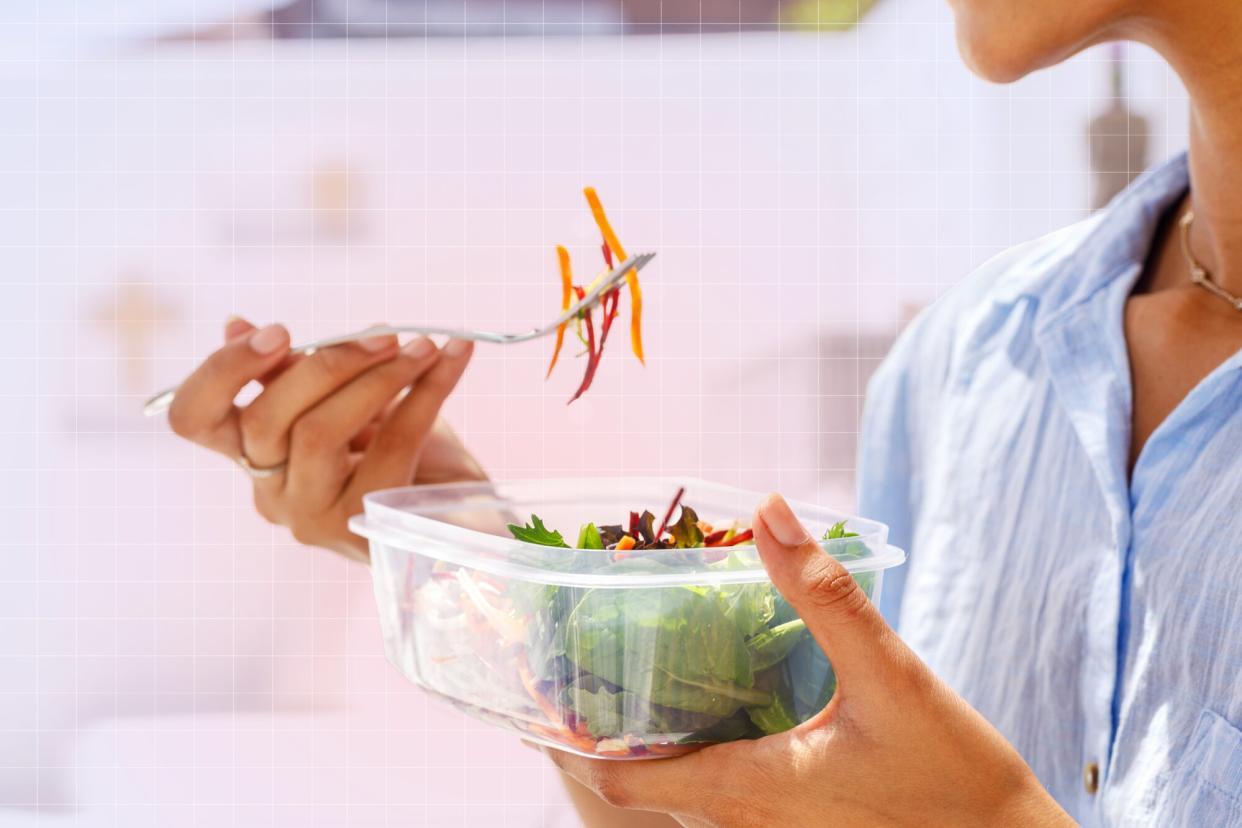New Research Ties PFAS to Hypertension Risk—Here's How to Avoid "Forever Chemicals" in the Kitchen

Getty Images / Thurtell
High blood pressure (or hypertension) can be a heavy burden on your heart. Since your heart has to work harder than normal when your blood pressure is consistently high, hypertension could eventually increase your risk for heart disease or stroke. And for women, who represent about 52% of high blood pressure-related deaths, weight, menopause and pregnancy can increase the risk of developing high blood pressure.
Eating healthy and staying active can help you stay on top of your heart health—we recommend trying a customizable eating pattern like DASH (or Dietary Approaches to Stop Hypertension). And for women, in particular, new research from the American Heart Association indicates that making an effort to avoid PFAS could also help you limit your risk for hypertension.
Related: New Research Says Eating a Wider Variety of This Nutrient May Lower Risk of High Blood Pressure
A study published in the AHA journal Hypertension found that women with higher concentrations of PFAS (per- and polyfluoroalkyl substances) in their blood had an increased risk of developing hypertension. The study focused on more than 1,000 participants between the ages of 45 and 56, all of whom had normal blood pressure levels at the start of the 18-year study period.
"Women seem to be particularly vulnerable when exposed to these chemicals," said lead author Ning Ding, Ph.D., M.P.H., in a media release. "Our study is the first to examine the association between 'forever chemicals' and hypertension in middle-aged women. Exposure may be an underappreciated risk factor for women's cardiovascular disease risk."
Related: The #1 Diet to Lower High Blood Pressure, According to Science
Even if you're not quite sure what PFAS are, you've probably heard warnings about some of the places where they show up, like the coatings on nonstick pans or compostable food containers. Also called "forever chemicals," PFAS can leach into your food (like while you're using a nonstick pan on high heat) and into the air, water or soil (like when it ends up in your compost bin or a landfill).
The researchers examined individual PFAS as well as the impact of several types of PFAS together and found that women with high levels of seven types of PFAS were 71% more likely to develop hypertension. PFAS can show up in all kinds of household items, from shampoo and dental floss to dairy and clothing, according to the AHA. It can be pretty tough to avoid PFAS entirely, but there are ways to keep them away from the food you eat—even when you're going out to eat.
Related: Are Nonstick Pans Bad for You?
3 Ways to Avoid PFAS in Your Kitchen
1. Skip microwave popcorn.
Consider eliminating store-bought bags of microwave popcorn from your snack routine. Those bags often have a PFAS-based coating on the inside, according to the folks at Clean Water Action and Toxic-Free Future. And skipping the pre-portioned bag doesn't mean you have to whip out the skillet or air-popper every time you want a little popcorn. You can actually make popcorn in the microwave using a reusable bag (like in this recipe from Stasher). Just keep a bottle of kernels on hand, plus your favorite popcorn seasonings, so you're always ready to go. You might even save a little money!
2. Stick a to-go box in your car.
This one may feel a little awkward, but it can pay off! The next time you're heading to that dinner place where you always end up with leftovers, bring in your own favorite glass or metal container to tuck away the remains of your burger or burrito. If you request a to-go box from your waiter, odds are you'll end up with a styrofoam container (which is pretty bad for the environment) or an eco-friendly compostable box, which could be chock-full of PFAS. As recently as March 2022, Consumer Reports found that even restaurant chains that made promises to scale back the PFAS in their food packaging were failing to do so. Stashing a favorite leftovers-ready container in your trunk or bag might just be the best way to avoid contact with those man-made chemicals. If you'd rather not bring in your own container, just make sure you aren't reheating your leftovers in the container you got from the restaurant.
3. Be careful with that nonstick pan.
Even a pan described as PFAS-free is still, in all likelihood, coated with a different kind of PFAS. (Read more in our guide to using nonstick pans.) The best workaround is switching to enameled cast-iron or stainless-steel cookware—but if you have a nonstick pan you love, just be sure to avoid using it over high heat and always use silicone or wooden utensils that will keep the pan from getting scratched. It's also a good idea to hand-wash nonstick pans with a soft sponge.

